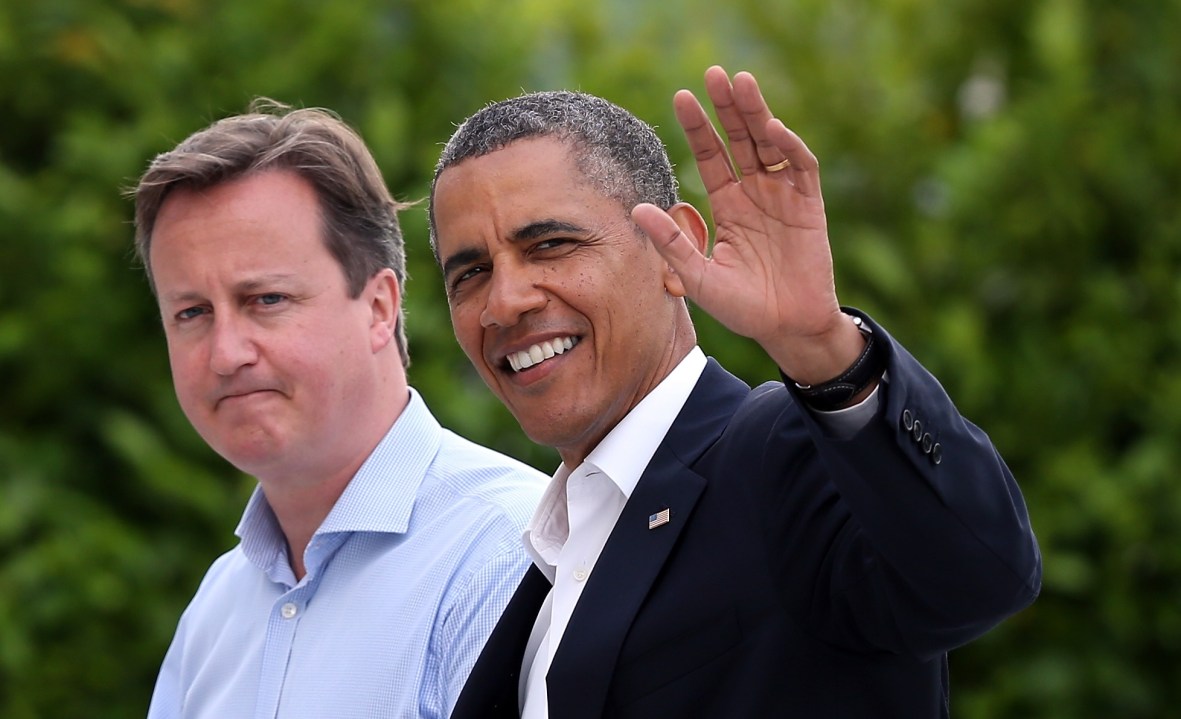We should, I suppose, be grateful to Benedict Brogan for his column today examining some of the reasons for why Britain should become more heavily involved in the Syrian civil war. Grateful, that is, because Mr Brogan’s article reveals how pitifully inadequate these reasons are. Here’s Mr Brogan’s conclusion:
The coalition against intervention in Syria appears to have all the arguments on its side. It is, by any measure, a terrible idea, and on current standings the Prime Minister would struggle to secure necessary support in the Commons. But Mr Cameron says he wants to save Britain from international relegation. In which case, membership of the league of front rank nations comes with a price that is sometimes quite awful. Going in could have consequences that, after Iraq and Afghanistan, we are all too familiar with. But we should acknowledge, as he evidently does, that sitting this one out carries a price as well. The global race is not just about economics. It is about the willingness of the few countries with the capacity to intervene to stand up and be counted when the need arises. Mr Cameron knows that the burden is always ours.
Is that it? Intervention is a terrible idea but we need to do it because otherwise other people will think Britain’s penis has shrivelled. Good god.
But when it comes to problems such as Syria Britain may have a voice but it does not, not really, have a foreign policy. We gave that up long ago. Indeed, Brogan’s argument is quite clear on this front:
As his predecessors have done, [Cameron] has understood quickly the price of our reliance on the US. The advantages that derive from that unique strategic relationship are not just special, they are vital. From intelligence sharing to cooperation on our nuclear deterrent, all the under-appreciated contributions that keep us in what Mr Cameron calls the global race stem from our ability to be able to call on American support that exceeds what we can offer them in material terms. A historic commonality of interests is expressed in a basic trade-off: in exchange for our moral and political support on the international stage, we secure privileged access to the vast resources of the world’s hyperpower.
It is a deal that all prime ministers have understood. It informs, no doubt, the Tory belief in a like-for-like replacement for Trident. Even when he refused to follow the US into Vietnam, Harold Wilson strained every sinew to offer the Johnson administration vocal political support. Margaret Thatcher set aside the embarrassment of the Grenada invasion in favour of the importance of the long-term partnership. Mr Blair stayed alongside Mr Bush on Iraq because he understood that whatever the cost, Britain had to be seen at all times to stand shoulder to shoulder with its principal ally. Gordon Brown understood the centrality of the relationship, to a point that was embarrassingly needy.
In other words, we cannot afford to upset the Americans, “whatever the cost”. If they want to do something then we need to do that something too, even if we might think it unwise, if we doubt our capacity to actually do that something or if we consider it contrary to our own national interest. The only thing that counts – the consideration that trumps all others – is remaining close to the Americans.
As it happens, we do gain a good deal from the Atlantic alliance but there remains something unseemly, something almost pathetic, about this kind of clinging neediness. And if we sacrifice our own independent judgement then how can we reasonably still claim to be in the Top League of Leading Nations?
It is a curious way of thinking. But, as Brogan has the honesty to admit, it is a view that governs other features of British policy too. The strongest argument for a like-for-like replacement for Trident rests upon the feeling that if Britain gives up, or reduces the potency of, its nuclear deterrent it signals to the rest of the world that we are no longer a Top Nation. The bomb is not a real weapon that might ever actually be used; it is instead a mid-life crisis status symbol that’s designed to impress the beholder but that, like a new sports car or a younger, trophy wife, signals something close to the opposite of what is intended.
If we’re going to become more heavily involved in Syria then fine, but let’s at least do so for the right reasons not because of some imagined historical responsibility or because Syria is a six-point fixture the losing of which will result in Britain being relegated from the top league. There may be worse arguments for doing something than this but it is hard, this morning, to think of any.








Comments